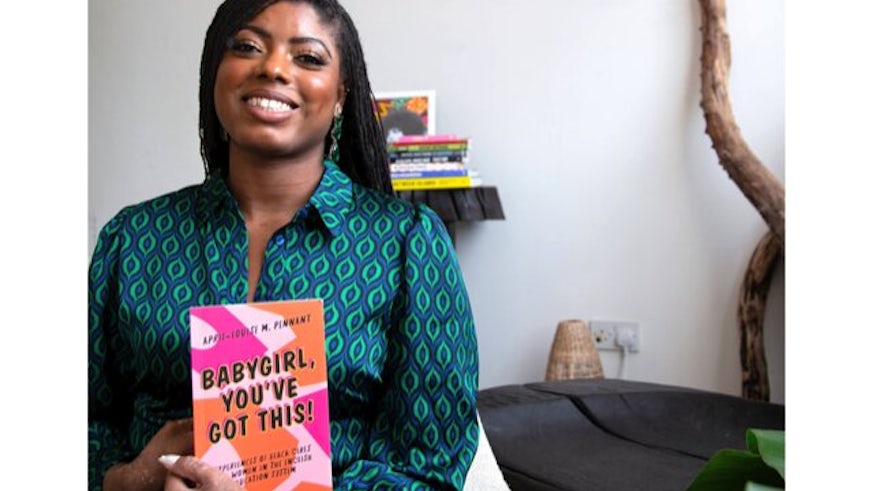Understanding the Experiences of Black British Girls and Women in the English Education System
1 February 2024

The unique challenges faced by Black British girls and women have not been addressed within the English education system, a Cardiff University academic concludes.
As part of Dr April-Louise Pennant’s Economic and Social Research Council (ESRC) studentship, she spent four years carrying out research and conducting 42 interviews to explore Black British women graduates’ experiences - from primary school through to university level.
Their stories, have been brought together for her upcoming book, Babygirl, You’ve Got This! Understanding the Experiences of Black Girls and Women in the English Education System.
The book considers the influence of race, gender, ethnicity, culture and social class on their educational journeys, documenting the various accessibility, financial, social and academic hurdles which Black girls and women face.
Dr Pennant, based at Cardiff University’s School of Social Sciences, said: “My research has shown that navigation within the English education system to become Black British women graduates can consist of mentally and psychologically draining processes, requiring additional energy which manifests in internalized pressure, mental health issues and, ultimately, restricted educational ‘success’.
“The exploration of this book has demonstrated that existing institutional understandings of equality and diversity are not sufficient to address the unique challenges experienced by Black British girls and women.
“There is also a need for checks and balances in the system to be implemented to not only identify any issues, as my research has done, but to address them before it is too late. Initiatives like decolonising the education system, mentoring and funding need to be reviewed and expanded to cover the entire education system to ensure that Black British women students can truly gain the social, gender and racial justice they deserve.”
As part of the book, Dr Pennant also reflects on her own experience of education and the path she has taken towards ‘success’, achieving her goal of becoming an academic and expert in her field.
She said: “I realised during my university studies that my educational story is one of many and this ignited a passion to explore others. I feel fortunate to be in a profession which builds upon my educational experiences and journey, my passion and my expertise gained from my studies and research training. Not only did I find myself and become Dr April-Louise, it led to the creation of sacred space to amplify the valuable knowledge of other Black British girls and women in an academic setting as well as to analyse and critique it.
“I hope that these insights will go some way to improving policies for future generations and that Black British girls and women feel empowered and seen by the experiences in this book. There are a lot of differences between the stories, but also many similarities and much to be celebrated in terms of our achievements and resilience .”
Share this story
The School is an internationally recognised centre of high quality teaching and research.


